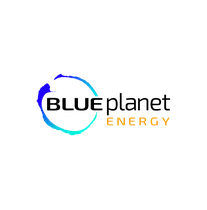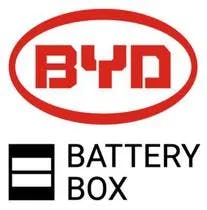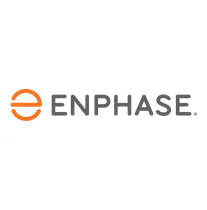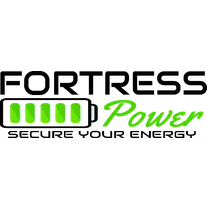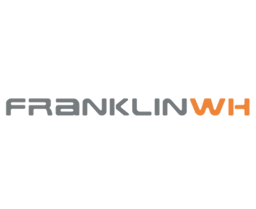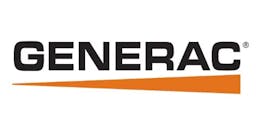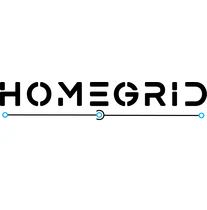Buyer's Guide 2026
Best Home Battery Systems
EnergyPal offers the best home battery storage and backup systems by power, cost & ratings. Our 2026 Buyers Guide reviews Enphase IQ, Tesla Powerwall, FranklinWH and other home energy storage solutions.
What is the Best Battery for Solar Storage?
Last updated: January 21, 2026
EnergyPal Team
Home batteries used for solar storage and blackout backup power are proven additions to home solar panel systems. Generally battery packs are used to store up low-cost electricity generated from solar panels and from the grid during off-peak hours. Then during high-cost peak utility rate hours or during a blackout the battery packs supply the stored electricity to power your home.
In this article, we’ll highlight the top solar batteries of 2026, focusing on the most sought-after features and key considerations to help you make an informed choice.
The 4 Best Solar Batteries February 2026
Tesla
Powerwall 2
9.3
Capacity
13.5 kWh
Warranty
10 Years
Best Seller
Enphase
IQ Battery 10
9.1
Capacity
10.1 kWh
Warranty
10 Years
Best Seller
Tesla
Powerwall 3
9.4
Capacity
13.5 KwH
Warranty
10 Years
FranklinWH
aPower
8.8
Capacity
13.6 kWh
Warranty
12 Years
| Solar Battery | Capacity | Warranty | Type | Monitoring |
|---|---|---|---|---|
| Tesla Powerwall 3 | 13.5 kWh | 10 years | Lithium ion | Yes (Tesla app) |
| IQ Battery 5P | 5 kWh | 15 years | Lithium Iron Phosphate (LiFePO4) | Yes (Enphase Enlighten) |
| QCells Qvolt | 10 kWh | 10 years | Lithium Iron Phosphate (LiFePO4) | Yes (Q.OMMAND Home) |
| FranklinWH | 13.6 kWh | 12 years | Lithium Iron Phosphate (LiFePO4) | Yes (Web portal & mobile app) |
| Tesla Powerwall 2 | 13.5 kWh | 10 years | Lithium Nickel Manganese Cobalt (LNMC) | Yes (Tesla app) |
| Enphase IQ Battery | 10.08 kWh | 15 years | Lithium Iron Phosphate (LiFePO4) | Yes (Enphase Enlighten) |
| Franklin Home Power | 13.6 kWh | 12 years | Lithium Iron Phosphate (LiFePO4) | Yes (Web portal & mobile app) |
Homeowners with solar plus batteries:
- Feel more secure and independent
- Avoid blackouts & power disruptions
- Pay less to their utility company
- Get greater tax rebates & incentives
Choosing the best battery packs for solar storage will depend on your location, size of your solar system, and home energy needs.
The top battery packs known by their brand names, Tesla Powerwall and LG Chem all use Lithium-Ion battery cell technologies. They are differentiated by their battery cell manufacturers, brand marketing, software to manage the power cycles, pricing strategy and certified installers. The most popular and proven manufacturers of the internal battery cells are Sonnen, Panasonic and LG according to the chart below:
| Battery "Pack" Brands | Battery Cell Manufacturer |
|---|---|
| sonnenBatterie LG Chem | Sonnen |
| Tesla PowerWall Generac PWRcell Panasonic EverVolt | Panasonic LG |
The best battery solution for your home will depend on several factors:
What is your annual and daily home power consumption?
Understanding your home's power consumption is crucial. Calculate or review your energy bills to determine your daily and annual power usage. This will help in sizing the battery system correctly.
Example: Your electricity bills show that your home uses an average of 30 kWh per day. Annually, this adds up to around 10,950 kWh (30 kWh/day * 365 days). This information is crucial for determining the size of the battery system needed to meet your energy demands
What size is your existing solar system or what are you planning?
If you already have a solar system, its size will influence the type and size of the battery needed. If you're planning to install a new system, ensure the solar and battery system are compatible and adequately sized for your energy needs.
Example: If you have a 5 kW solar panel system, it might generate approximately 20 kWh per day under optimal conditions. This information is essential in choosing a battery that can store enough energy to cover your consumption, especially during periods when solar production is low.
What should I know about the location of my home battery system?
The location of a home battery is crucial for both safety and efficiency. Key considerations include proximity to the main electrical panel to minimize energy loss and maximize efficiency, ensuring the area is well-ventilated to prevent overheating, and keeping it away from extreme temperatures and direct sunlight which can degrade battery performance.
Another thing to consider is the accessibility for maintenance and repairs as it is important for compliance with local building codes and manufacturer guidelines. Safety measures should be in place to protect against potential hazards such as flooding or fire, making a secure, dry, and stable location ideal.
Do you want to run just critical electrical loads or everything including A/Cs?
Decide whether the battery system needs to support only critical loads like refrigerators and lights, or if it should also handle high-energy appliances like air conditioners. This choice will significantly impact the battery capacity required.
Example: If you choose to power only critical loads, you might prioritize running your refrigerator, a few lights, and essential electronics, which requires a smaller battery capacity. However, including high-energy appliances like air conditioners will necessitate a significantly larger battery to handle these additional loads.
Learn more: How long can a solar battery power my house?
Which batteries are offered in your area by skilled and licensed installers?
Research which types of solar batteries (like lithium-ion, lead-acid, etc.) are available in your area. Also, look for skilled and licensed installers who can provide reliable installation and after-sales service.
Example: In your region, the most commonly available batteries might be lithium-ion and lead-acid. Lithium-ion batteries are more compact and efficient but costlier, while lead-acid batteries are bulkier and need more maintenance but are less expensive.
What's your budget?
Your battery budget will be a deciding factor. While higher-capacity and more advanced batteries offer greater efficiency and longevity, they also come at a higher cost. Balance your energy needs with what you can afford to invest.
Example: If your budget is $10,000, you might be able to afford a mid-sized lithium-ion battery system, offering a balance between capacity and longevity. With a lower budget, you might consider a smaller lithium-ion system or a larger lead-acid system, depending on your energy needs and other factors.
Learn more: How much does a solar battery cost?
Our experts at EnergyPal are here to help you answer these questions and choose the right battery system for your home.
Are Home Solar Batteries Worth It?
Generally, home batteries are financially “worth it” when two of three conditions are met:
- You experience or are concerned about power outages
- Your peak and off-peak utility power rates differ
- You qualify for cash incentives for installing a battery
A clear security benefit of home batteries is having your own backup power during power outages or power disruptions. During these times, electricity from your home batteries could keep your refrigerator cold, lights on, fans and pumps running, mobile devices charged, security system active, and heating or cooling systems powered. With solar attached, your home could be self powered for days, and help prevent discomfort, expense, losses or damage!
Time-of-use arbitrage is a clear financial benefit if your utility company rates differ throughout the day. Your battery will store up power when it's cheap and sell the power back to your utility when it's the most expensive. Most home batteries have software that will automatically manage this process and save you money every day!
You may also qualify for current rebates and incentives for installing home batteries. Many states and local utilities are offering additional large cash incentives, especially when home batteries are attached to renewable energy systems like solar panels. Plus, the federal investment tax credit (ITC) applies to home batteries attached to solar, so now is a good time to look into how much you can save!
Get a custom home solar quote.
Searching for batteries?
Browse our database to find a comprehensive list of manufacturers and their batteries.
All Solar Battery Manufacturers
The EnergyPal team members began their journey in solar energy early on, helping people across North America transition to solar power. Since 2008, our mission has been to lead the world towards 100% renewable energy. We are both energy enthusiasts and clean energy experts dedicated to helping you save on solar. With over 65 years of collective experience in the solar industry, our leadership team ensures a seamless transition to solar power.
We have helped more customers in North America go solar than any other partner group. Throughout our journey, we've been awarded and recognized for numerous solar milestones. Our team received a SunShot Initiative Grant from the US Department of Energy in 2011 to reduce the soft costs of solar installation. In 2011 and 2012, our Canada team expanded their reach by acquiring two US solar marketplaces, further strengthening our digital technology.
We have developed customer programs for over 20 of the largest solar companies and supported hundreds of other solar companies with educational efforts. Our founding companies were acquired by NRG and Sunrun for their innovative technology and significant impact on sustainability. These experiences have provided our team with valuable insights into every major solar financier, installer, and manufacturer in the industry.
Get a free quote
and EnergyPal offers.
Call (800) 990-3725 or complete the questions and an EnergyPal Advisor will contact you with comparative quotes.



